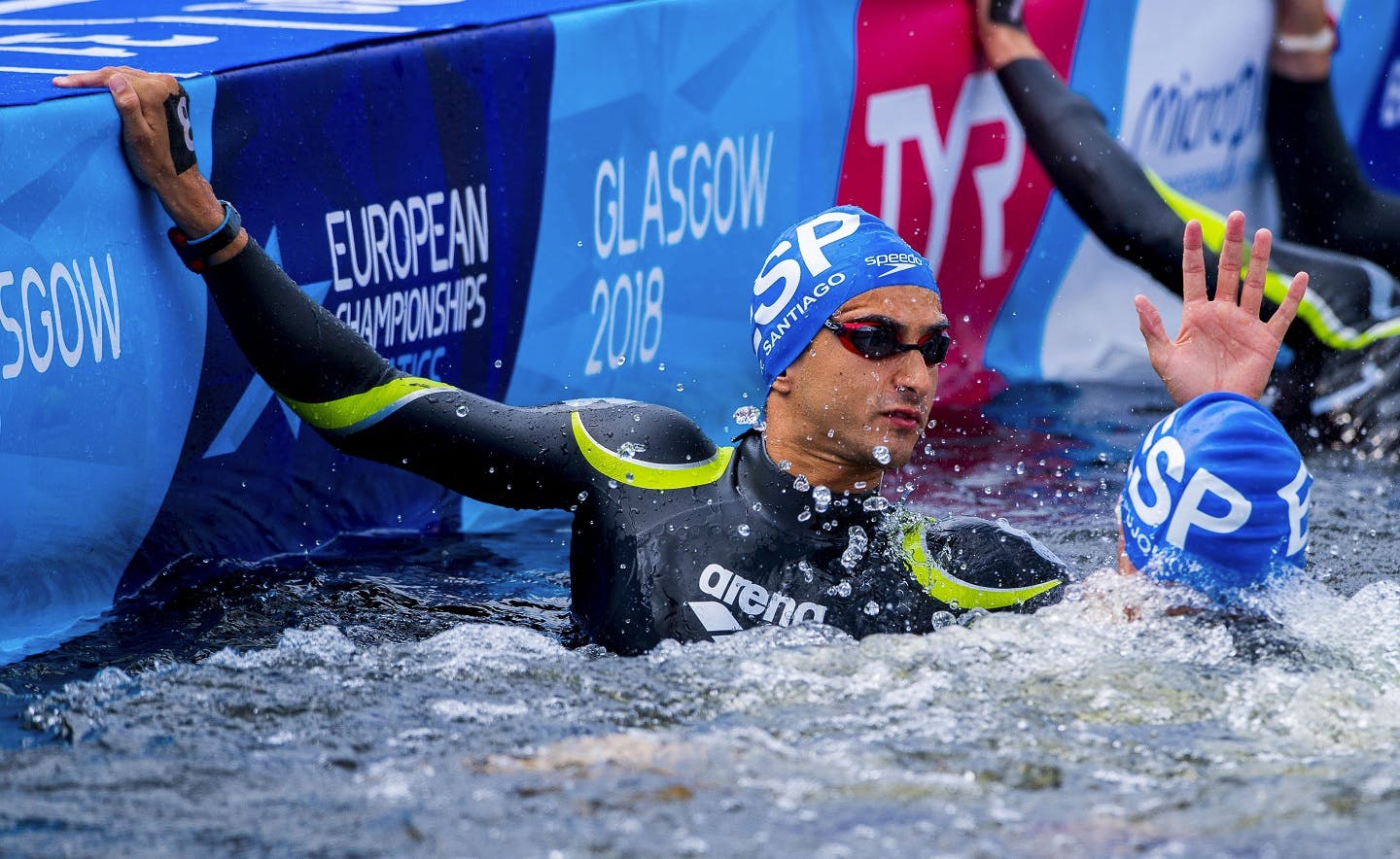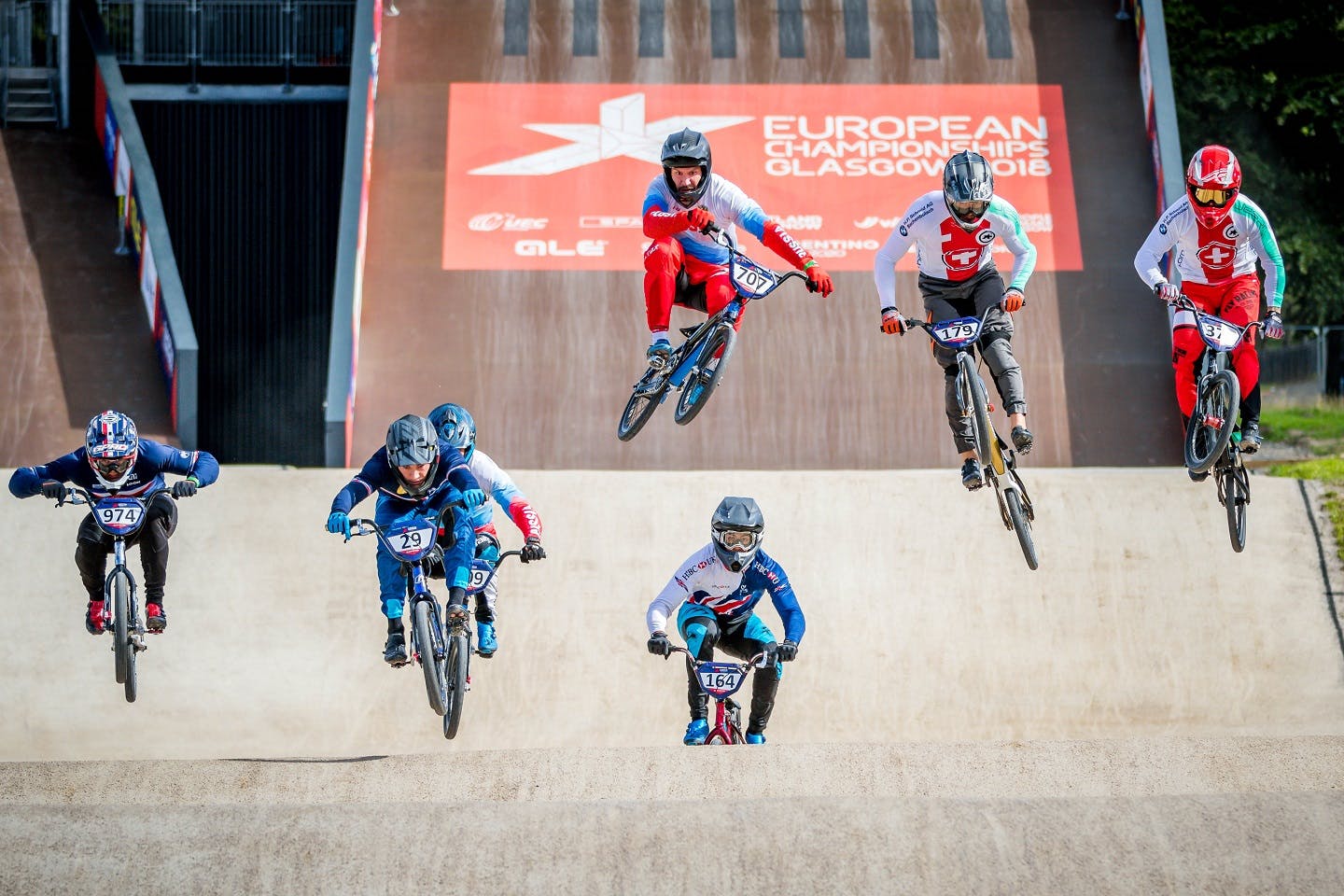Produced in association with People Make Glasgow
In the sports event-hosting world, few would dispute that Glasgow has punched above its weight in recent years.
The acclaimed 2014 Commonwealth Games was just the beginning for a city that has based its entire sports events strategy around attracting championships that tally with a carefully-incubated club structure that has been designed to enhance societal as well as sporting potential.
In 2015, Glasgow held the IPC Swimming World Championships, as well as the Artistic Gymnastics World Championships, which were hailed by then-FIG president Professor Bruno Grandi as “even better than the Olympic Games”. The events generated an economic impact of £4.9m (€5.5m/$6.2m) for Glasgow. Other renowned international sporting events followed, including the BWF World Championships of badminton in 2017.
Then this summer Glasgow co-hosted the 2018 European Championships with Berlin, with Glasgow hosting the cycling, aquatics, golf, gymnastics, triathlon and rowing events. Berlin staged the European Athletics Championships in what was a new concept for some of sport’s top European federations.
The action stretched from well-established Glasgow sporting arenas like the SSE Hydro and the Emirates Arena to other areas of Scotland such as Loch Lomond and Edinburgh.
“With the European Championships, it was more successful than we anticipated, and some of the broadcast figures were eye-watering,” says Glasgow City Council-affiliated charity Glasgow Life’s director of sport and events, Billy Garrett.
“We set up a legacy framework involving a range of stakeholders before the event, with workshops arranged across the city with various community, health, sports and social groups so we could ask them what they wanted to see as a result of the event.
“Out of that we identified key objectives that provided the basis for a comprehensive action plan spanning health, education, sport and community that is implemented and monitored by a steering group within a legacy framework.
“One of the projects included a mini European Championships that involved schools across the city and we also had a ‘Get Ready Glasgow’ scheme in place to help clubs prepare for the post-event surge of members following the Games.”
Elite standing
Earlier this year, Glasgow maintained its place as one of the world’s top five SportBusiness Ultimate Sports Cities, following its lofty placing in the 2015 table. Glasgow, with about 600,000 inhabitants, scooped the Best Small City award – for cities with a population of less than 1.3 million – whilst joining New York, Melbourne, Auckland and London, which finished top of the rankings.
However, there is no sign of Glasgow taking its foot off the pedal, and future major events are already confirmed on the calendar. The 2019 European Athletics Indoor Championships will precede the Uefa European Championship 2020 football tournament, which will feature three group-stage matches and one knockout phase game at Hampden Park.
Such a track record has enabled Glasgow to forge close links with international federations and rights-holders across a variety of sports. “Through the Commonwealth Games and the European Championships, we have developed some very interesting relationships with federations,” Garrett says. “As a result of the quality of the presentation and the facilities, we’re in discussions with a number of federations about bringing major events to the city.”

New opportunities
Intriguingly, some of these talks are focusing on opportunities to work with federations and organisations on new events. According to Garrett, although such possibilities are in the minority in the city’s events roadmap through to 2030, they would be game-changing in the industry.
“The European Championships was a new event and it was a rewarding experience to be involved in the process to establish it,” Garrett says. “We’re alive to any opportunities around new events and getting involved with other partners to create new products.
“We are looking at really interesting events from 2023 through to 2030 and some of these do not exist on the calendar yet. For a city like Glasgow to be on the ground floor and involved in co-designing and co-producing something new and exciting would be extremely rewarding.”
Glasgow’s innovative approach has been adopted partly due to the evolving nature of the major events industry. “The event sector is changing,” Garrett adds. “Some international federations are beginning to talk about moving away from traditional bid processes and, instead, having more of a dialogue with a strategic approach so they can work in partnership with host cities.
“When we talk about legacy, for federations that should be about developing their sport in certain territories. From Glasgow’s perspective, we’ll continue to bid for events where we need to, but we’re really interested in establishing a dialogue with event-owners, rights-owners and federations.”
Partnerships
Collaboration is central to the city’s approach. Glasgow Life works closely with the Scottish Government, local authorities and agencies such as EventScotland. The organisation is also a regular attendee at influential industry gatherings such as SportAccord.
“Partnerships are really key as we have the administrative and governmental structure to support events,” Garrett says. “I would always advise other cities to bring everyone together into a single, simple structure, so it isn’t overly bureaucratic and there is a format in place that supports the overall strategy.
“We can’t deliver events on our own. We work hand-in-hand with the Scottish Government and other organisations and authorities. If Glasgow is successful, Scotland is successful, so we always talk as one. That is why, for example, it didn’t bother us at all that places outside Glasgow hosted some of the events during the European Championships.”
At its heart, Glasgow’s event-hosting strategy focuses on “events that feed back into the city”, according to Garrett. “If anything has changed over the years it’s the realisation of that fact, so Glasgow’s event strategy has evolved rather than changed,” he says. “Our events are being delivered to the people of Glasgow, so they are not just a show that comes into town and then leaves.
“The city has been on a journey over the past 30 years, bringing in significant investment in infrastructure, culture and sport. Glasgow was a struggling city that faced fundamental challenges in the 1970s and 1980s, but it has transformed its perception of itself, led by cultural and sporting changes. For example, outside London, we have more live music performances than anywhere else.
“Our principles haven’t changed and our events strategy ensures we are delivering benefits. We have to think long and hard about where events sit in our portfolio and how they are packaged and contextualised.”

Event packaging
Packaging the events involves putting in place a string of supporting initiatives, which may include youth competitions and grassroots programmes. “The World Men’s Curling Championships will take place in 2020, but that event isn’t just landing in Glasgow out of nowhere,” Garrett adds. “We have hosted different age group championships and have ensured that curling club memberships have been building up over a period of time.
“Also, before the 2015 FIG Artistic Gymnastics World Championships, Glasgow hosted regular gymnastics grands prix for years to ensure there was a really powerful club structure in the city.
“As a city we remain ambitious and we want to deliver benefits for the people of Glasgow, whether they are economic or cultural and whether they raise the profile of the city or encourage physical activity.
“The sports we choose resonate with the people and the city.”
Above all, Glasgow is determined to maintain the momentum as it looks forward to a fresh era of events. “You could argue that the European Championships was a legacy event following the Commonwealth Games in the same way that the 2019 European Short Course Swimming Championships will be a legacy of this year’s Championships,” Garrett says. “In some ways we are at the culmination of a 25-year strategy, but it is by no means the end point and we are not stopping now.”